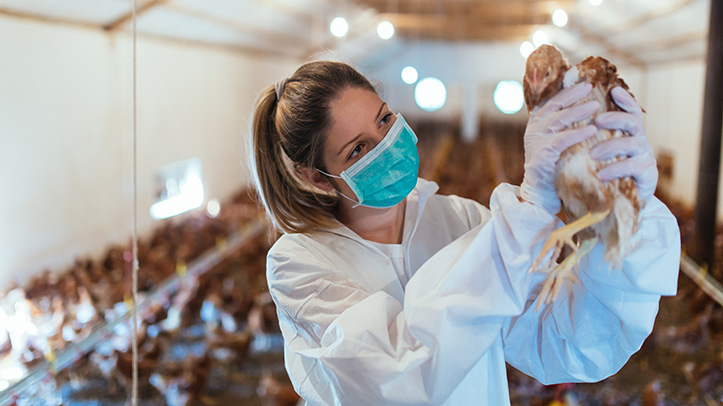Two poultry workers in England have contracted avian influenza, the UK Health Security Agency (UKHSA) has said, following the introduction of an asymptomatic testing programme for people who have been in contact with infected birds.
Neither experienced any symptoms of avian influenza and both have since tested negative.
Detection of avian influenza in poultry workers can follow contamination of the nose and throat from breathing in material on the affected farm or can be true infection. It can be difficult to distinguish these in people who have no symptoms.
Based on the timing of exposures and test results, one person is likely to have had contamination of the nose and or throat from material inhaled on the farm, while for the second it is more difficult to determine which is the case. Further investigation is underway but meanwhile precautionary contact tracing has been undertaken for the second individual.
The UKHSA has not detected evidence of human-to-human transmission.
“Current evidence suggests that the avian influenza viruses we’re seeing circulating in birds around the world do not spread easily to people,” said Professor Susan Hopkins, chief medical advisor at the UKHSA.
“However, we know already that the virus can spread to people following close contact with infected birds and this is why, through screening programmes like this one, we are monitoring people who have been exposed to learn more about this risk.
In the asymptomatic surveillance programme, poultry workers are asked to take swabs of their nose and throat which are tested for the presence of influenza virus, during the 10 days after their exposure. In some cases, they may also be asked to have finger prick blood tests to see if UKHSA can detect antibodies against avian influenza, suggestive of an immune response in the blood.
As part of public health response, UKHSA follows up all individuals who have been in contact with a confirmed human case of avian influenza.


